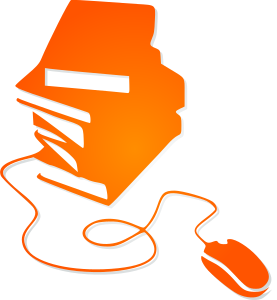National Archives Virtual Genealogy Fair: October 28, 29, and 30, 2014:
I love YouTube, and watching the presentations at that venue will be technologically a breeze! To access the list of classes/lectures, access this site.
What we can find with the help of Federal records will give our ancestry hunt a big boost.
A Thank You to my friend Val for passing this along.
Historically, hats have represented one's occupation, one's hobby, or one's passion. I wear the Family History Hat because I am passionate about genealogy.
My Fave Sites for Genealogy and Family HIstory
Friday, October 03, 2014
Thursday, October 02, 2014
Seriously, You Should Think About Going!
RootsTech Conference Salt Lake City Feb. 12-14th. I encourage you to read through the list of classes (over 200). You might do something like this only once in your lifetime, but you'll have the memories forever!
Tuesday, September 30, 2014
Genealogical Society of Okaloosa County October Program
We call it, casually, "G-Soc[k]"; it's the Genealogical Society of Okaloosa County, (FL). The Society is over 30 years old and has been faithfully providing monthly education programs for area genealogists all that time! That takes dedication from the officers and committee chairs and over a period of time, the faces change, revolve, and disappear.
One such person was our friend, Florence "Flo" Lembeck. She served as President of the Society in 1988 and again in 1992. She was active in many ways in her community (Crestview) and in her County. I have posted a link for her obituary, here, for those of you who knew or knew of Flo's contributions. She was instrumental in transcribing records and helping with the publications of the society, publications which preserve the records of Okaloosa, Santa Rosa County, and Walton County.
Flo was my mentor and a friend; she encouraged and inspired me.
October 11th Meeting (Second Saturdays, always), 2014:
One such person was our friend, Florence "Flo" Lembeck. She served as President of the Society in 1988 and again in 1992. She was active in many ways in her community (Crestview) and in her County. I have posted a link for her obituary, here, for those of you who knew or knew of Flo's contributions. She was instrumental in transcribing records and helping with the publications of the society, publications which preserve the records of Okaloosa, Santa Rosa County, and Walton County.
Flo was my mentor and a friend; she encouraged and inspired me.
October 11th Meeting (Second Saturdays, always), 2014:
Mr. Bert Blackmon will be the guest speaker for the October meeting at 10:00 am at the Heritage Museum of Northwest Florida. His presentation will be "Researching Military Records" and will focus on the many kinds of records available for persons who served in the military and where to look for these records.
Sunday, September 28, 2014
Stumbling Books...Part 2
- If I have searched for an online publications (digital book, article, etc.) and haven't located the information for which I am looking; what's next? Answer: Search the online catalogs of libraries, for their holdings. Think university libraries, private libraries, regional libraries, periodical libraries, etc. Look into library acquisitions and "collections". Do the WorldCAT thing.
- If I take a research trip to Utah to visit the Family History Library, what do I do first and what choices do I make for maximizing my time? Answer: This answer is multi-faceted.
- Before you ever leave home, and this goes for any repository that you are visiting, you want to become familiar with the holdings of that institution. Much information is available online.
- People are your best resource for some things. At the FHL in SLC, there are "guides", classes, etc., for free. Know which lectures/classes are being given the week that you are there. Ask for a guide/volunteer/Family History Missionary, especially if you need translation help or research guidance. Again, before you leave home, research the way the library is set up, when it's open, etc.
- Head for the book shelves, which are located, last I checked, in a separate building across the street. You know already what is there because you've looked at the catalog. Look for the things you need that are not available elsewhere, such as books and family histories that are under copyright.
- Finally, check out this "TipList" for visiting the Library.

Family History Library in Salt Lake City, Utah
- If I visit a local or regional library, how do I locate a book that will be helpful to me in building my family tree? Answer: Again, most, if not all libraries have an online catalog. Categories you might check for family history:
- Some libraries have "history rooms", a genealogy shelf or two, or a whole genealogy department. For example, look at the genealogy holdings of the Milton, Florida library, (Santa Rosa County Library System). Another link that might be more helpful is the catalog link, perhaps. The section at the Milton (main branch) that is devoted to genealogy has been grown by the donations and support of the Santa Rosa Genealogical Society. That society's newsletter often lists new acquisitions.
- If you really want to wring out the sources in a specific location, expand your scope of search. For example, in the case of Santa Rosa County, Florida,
- A Historical Society
- Their Gen-Web Project Site
- Linkpendium WebSite
- Facebook Pages
- Newspapers, etc.
 | ||||||
| River Walk in Milton, Florida: |
Here are some suggestions:
Most, if not all of the physical repositories that we might visit, employ a reference librarian (also called by other names--"adult librarian", etc.). This person is put there to serve your needs. If after consulting an online catalog, you cannot locate the source you are looking for, be sure to ask for help. Get a map of the arrangement utilized in this particular library. It is possible, and probable that that what you need may not be in the reference section, may not be catalogued according to the Dewey Decimal system. If you do decide to ask the librarian for help, be as specific as you can in what you are needing. Be polite and gracious, patient and appreciative. For more info, Google "Ask a Librarian" and the state in which you are researching.
When looking for books online, please don't forget to search Google Books.
Here is an example of what I found: My search parameters were Loftin genealogy "North Carolina"; I clicked on the first "hit", North Carolina Historical and Genealogical Register. There were twelve references in this digitized publication and I looked at every one. What I saw was land transactions, lots of land transactions. Still, I find names, dates, and places of direct lineal ancestry! Better yet, I found the same for people who may have been related to Leonard Loftin, who may have been in his "cluster"; I recognize some of those surnames as some of those that I already, with which I am familiar.
If you can't find your ancestors in the 1700's and back further, you will have to search old books, online or in person!
Stumbling Books Part 1
Stumbling? The inveterate reader and messy person leaves books stacked by the bed, on the floor by the recliner, tucked into already heavily laden bookcases. It's okay to be messy as long as you are a genius, right?! As long as you don't stumble, trip, or land on your head, put your books wherever you can. Dick Eastman, popular blogger, is an advocate for scanning those books that are irreplaceable.
Are you stumbling to find sources for your favorite hobby, genealogy? Are you able to find virtual sources online that have the beauty of being searchable with a keyboard, mouse, and a click? Can you locate genealogical information (stored in a physical book) via the Internet?
The modern solution to these and other challenges is: combine the power of digital with the power of physical repositories. Get the best of both worlds, realizing that there is still so much published data not yet scanned, not yet digitized, and not yet available on the Internet, and the work of getting that done is still a mammoth project!
How did we find the books we needed for genealogy before the Internet? We used bibliographical guides and we used card catalogs, right? On the Internet, we actually have "virtual" card catalogs. They are found at Ancestry.com, a portal is provided at Cyndislist.com, at and a searchable option for books at FamilySearch.org. There are webistes, now for most physical repositories whether large or small.
Search the Library of Congress to see what has already been published about your family names (the wheel doesn't always need to be re-invented).
Loveliest of all, perhaps, is WorldCat, a catalog that can find the book you are searching for, combined with the ability to tell you just where copies of the physical book reside in reference to your location.
Are you stumbling to find sources for your favorite hobby, genealogy? Are you able to find virtual sources online that have the beauty of being searchable with a keyboard, mouse, and a click? Can you locate genealogical information (stored in a physical book) via the Internet?
The modern solution to these and other challenges is: combine the power of digital with the power of physical repositories. Get the best of both worlds, realizing that there is still so much published data not yet scanned, not yet digitized, and not yet available on the Internet, and the work of getting that done is still a mammoth project!
How did we find the books we needed for genealogy before the Internet? We used bibliographical guides and we used card catalogs, right? On the Internet, we actually have "virtual" card catalogs. They are found at Ancestry.com, a portal is provided at Cyndislist.com, at and a searchable option for books at FamilySearch.org. There are webistes, now for most physical repositories whether large or small.
Search the Library of Congress to see what has already been published about your family names (the wheel doesn't always need to be re-invented).
Loveliest of all, perhaps, is WorldCat, a catalog that can find the book you are searching for, combined with the ability to tell you just where copies of the physical book reside in reference to your location.
Subscribe to:
Comments (Atom)
When I was Young! Tennis Interview
I may have been a little bit precocious at the age of 15 or 16. But I didn't let that stop me! While Northwest Florida might have b...
-
I may have been a little bit precocious at the age of 15 or 16. But I didn't let that stop me! While Northwest Florida might have b...
-
Marriage License (May be Online at a State Web Site, Ancestry.com or FamilySearch); I once located a bunch of marriage records that an ind...
-
Family History is an umbrella. Many types of information fall under that umbrella. Researching the genealogy (names, dates, and pla...



 ed
ed
